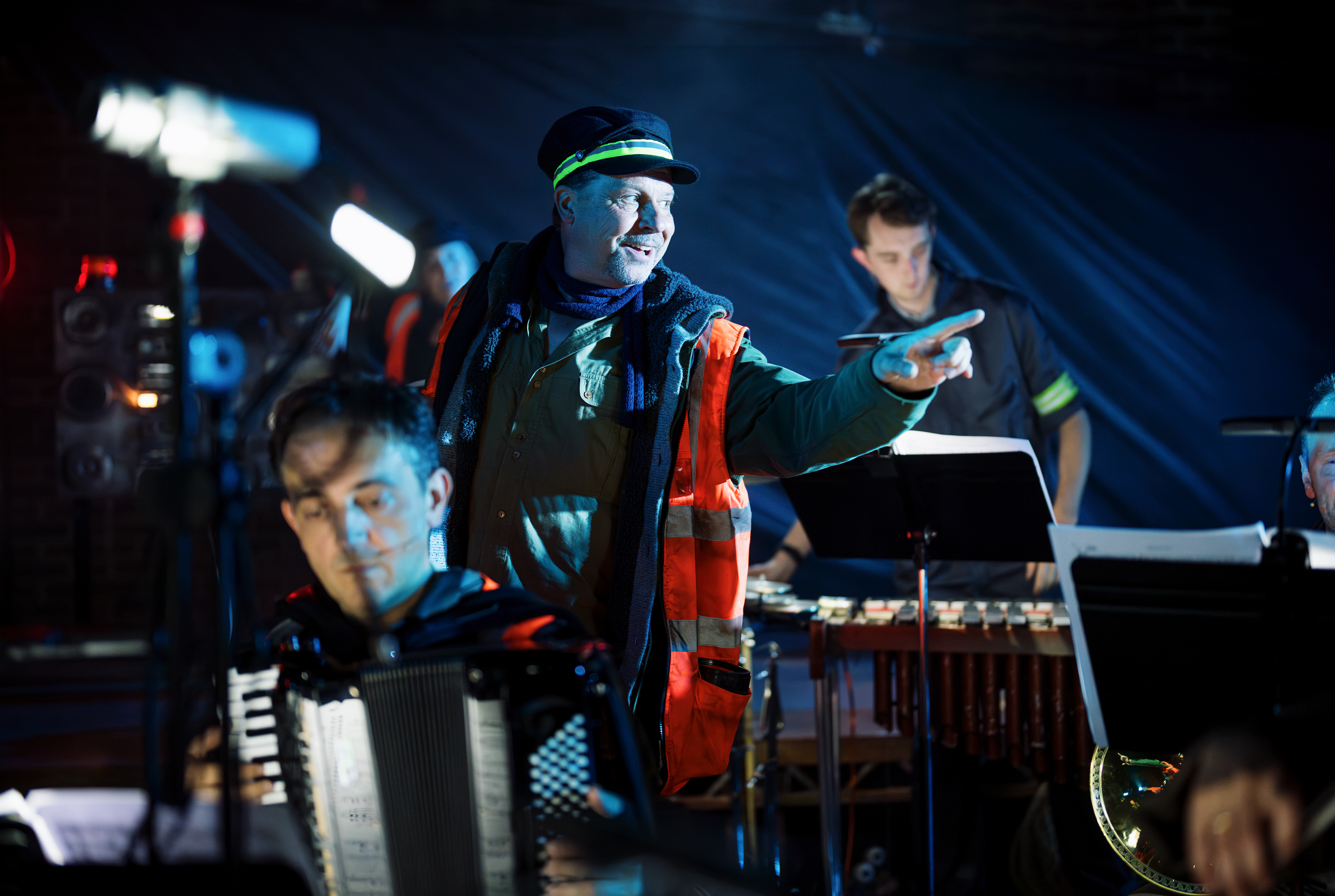The Flying Dutchman – Opera Up Close / Grand Junction, London
A new take on Wagner’s opera, The Flying Dutchman retains themes of wandering, loneliness and the search for shelter while reflecting contemporary Britain back to itself.

This image and lead image © Alex Brenner.
A New Take On A Classic
I make no secret of the fact that I am an infrequent opera reviewer, so come at these posts as an excitable amateur. I’ve seen very little Wagner performed, in fact perhaps only Lohengrin. So I had to research both what The Flying Dutchman would usually be, as well as what this new version, by Glyn Maxwell and Laura Bowler, brings.
It’s most interesting the way that stories can be reshaped almost beyond recognition, yet retain echoes of the original. If you’re not familiar with The Flying Dutchman (or Der Fliegende Holländer), it’s the story of a sailor cursed for blasphemy. He wanders restlessly and deathlessly, with a chance every seven years for redemption through the love of a faithful woman. The young woman this time around is Senta, and this is not a comedic opera so suffice it to say it doesn’t end well.
Opera Up Close’s reworking, based on a concept by director Lucy Bradley, is brought closer to home shores. It’s an only slightly dystopian Britain, in which the latest defence against those seeking refuge is ‘The Wave’, using water to overpower small boats. The Dutchman is now a mariner adrift, helped ashore for a price. Senta becomes Starlight, part of The Watch (a group whose mission is to watch the coastline for intruders, much like this). Her change of heart spreads to fellow Watch members, but will it be enough to turn the tide in favour of the mariner? And how do we explain those voices he hears? When the concept was first initiated pre-pandemic, the government had not yet gone full throttle on its unfeeling and illegal policies. Now, as I say, it only feels slightly dystopian.

Image © Alex Brenner.
Opera Literally Up Close
The concept of Opera Up Close is that they make operas with and for everyone, working with local communities and bringing touring productions to areas not otherwise well served by opera and the arts. I saw it in London where I am very well served for opera and the arts, but I benefited from a second interpretation of the company’s name: seeing The Flying Dutchman in an intimate venue, right up close to the singers and orchestra.
As well as reworking the story of The Flying Dutchman, Opera Up Close have reworked Wagner’s music. It is re-fashioned for an eight-piece ensemble including, unusually, and accordion. The musicians, from Manchester Camerata, double as singers for some chorus sections, donning sailor or Watch costumes. Other elements, including a larger chorus and the overture are pre-recorded and played to us as if over the radio. Also pre-recorded are clever news broadcasts read by Neil Balfour, blending shipping forecasts with plot foreshadowing and notes on the music.
Combined with a minimalist set by Ana Inés Jabares-Pita, the overall effect is immersive. I saw The Flying Dutchman at Grand Junction near Little Venice, formerly St Mary Magdalene’s Church, Paddington. The company’s voices resonated magnificently in the vaulted church ceiling. Particularly soprano Philippa Boyle, who plays Starlight and has what seems to me a perfect Wagnerian tone.

Image © Alex Brenner.
Final Thoughts
As an excitable opera amateur, I so enjoyed The Flying Dutchman. Firstly I found the reimagined story so much more relatable. There are echoes in there of similar themes: loss and longing, a search for a safe harbour, wandering at sea. Like Starlight’s dreams recounted to fellow members of the Watch, it’s a tale which humanises the regular news stories about migrants and asylum seekers and prompts us to remember the better side of our human nature. The broad strokes are similar enough to the original to allow the music to support this new narrative. And yet it’s much more timely and urgent than a tale of curses and supernatural wanderings.
I also very much enjoyed the performances and music. I’ve mentioned Philippa Boyle already. Pauls Putnins plays opposite her as the Mariner, with a magnificently rich voice and superb acting. Timothy Dawkins is Captain Dee, willing to put aside his mission to defend his country for the right price. Again his sonorous bass register sounds wonderful in the former church. And lastly Carolyn Holt plays a dual role: a sailor under Captain Dee, and Mari, in charge of the Watch. The love story angle between herself and Starlight is perhaps a little extraneous, but Holt does well channeling each of the characters. Manchester Camerata are uniformly excellent in handling music, singing and costume changes. And conductor/music director Tim Burke is lively: I had the feeling he brought a great energy to the reduced orchestra.
14 July is the final date to catch The Flying Dutchman at Grand Junction in London. Other dates follow in Hull and Liverpool until 23 July. I hope that Opera Up Close will continue to tour this production. It deserves to be seen by as wide an audience as possible.
Salterton Arts Review’s rating: 4/5
The Flying Dutchman on tour until 23 July 2023
Trending
If you see this after your page is loaded completely, leafletJS files are missing.

